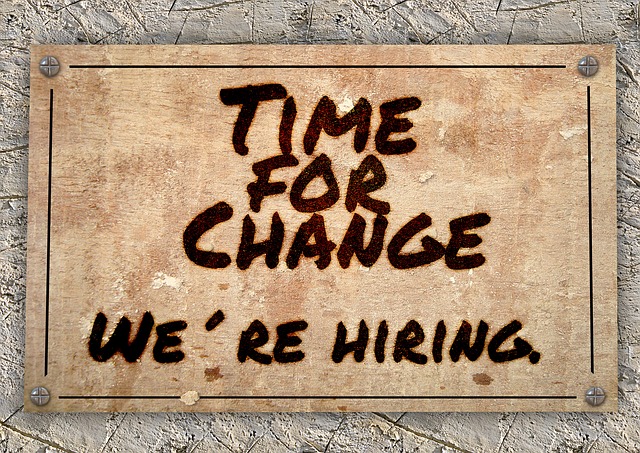Seeking Female Software Developer
This morning, an acquaintance I’ve known for several years approached me about a software development position, one that would manage a small, off-shore team of app developers. I replied that, though I had experience managing teams remotely, I myself am not a software developer. I was, however, happy to spread the word about the position.
Then I stopped. Wait – why a female developer? His answer: “It’s a beauty services company.”
Ohhh… riiiight. Beauty services. Female.
There it is.
This, of course, discounts the fact that men are becoming as much a part of the “beauty” market as women. (In China, for example, the skin care market is driven by male beauty products.) Which is not, necessarily, something to applaud. Being hung up on appearance, regardless of gender, is not a healthy choice. I’d much rather the world’s population jointly obsessed over solving problems like hunger, climate change, financial inequality, and being compassionate to your fellow planetary occupants.
It may be important to note that I was (foolishly) sitting in bed, multitasking, while using a mobile device to chat. Or it may not. In any case, I’ve been so focused on subject matter pertaining to my thesis topic, that the discriminatory nature of the job description was so obvious to me I was shocked to realise he didn’t see it. The idea of a software developer needing to have a particular set of biological plumbing simply does not compute.
Not to mention that the idea of me being in any way in tune with beauty services is genuinely laughable. I shower every day, file my nails (mainly because if they get too long my ability to type – and, therefore, play video games – is impeded), and use tinted lip balm. And that, right there, is about the extent of my involvement in “beauty services.” I know much more about disassembling and reassembling an M16 than I will likely ever know about manicures and waxing.
The beauty of a clean shot, perhaps?
I pressed my acquaintance for further information, figuring he might not be aware of the potential legal pitfalls this company could be getting into.
So I said to him, “Well, you might want to look into that before propagating [their] sexist and, most likely, illegal hiring practices. I’m all for women in tech, but this is pretty insulting.”
Only I didn’t actually type the word “their”, nor did I clarify that I found their idea insulting, not his approach about the offer. And this meant he was now on the defensive. Yeah, as someone who works in communication (blogging, social media management, etc.), I know the power of an improperly turned phrase. So, my bad, mea culpa, and I’m really sorry. In fact, when I saw his response – “Sorry for bothering you !!” – I knew it had gone over in the worst possible way.
I suppose that after knowing the fellow for several years, and after discussions in an online tech community (started by him) that included relaxed and respectful discussions about Gamergate (a topic initiated by another female member of the group), I figured he’d copped on to the fact that I was non-trollish, if opinionated, and very equality-minded. Apparently not.
I apologised, attempted to explain about my thesis topic, apologised again, said that I was on mobile and was multitasking, apologised yet again, tried to clarify that it was about the company’s position not his… And throughout all of that all of that, the only response I received was “…I’m not approaching or dealing with you ever again !! Adios.” And I felt like an ass.
But really, should I feel that bad? It was a small bit of miscommunication, easily clarified. Yeah, I’ve gotten used to the taste of my foot in my mouth over the years, but this? His response was entirely within his own control. He could have chosen a thousand different, more professional ways to respond – including taking a moment to examine the disturbing implications of the situation – yet he didn’t.
What does this tell me? A few things. All of which I knew already.
One: remember that acquaintances, no matter how much time spent in each others’ relative orbits, don’t really keep up on each others’ politics. Nor will they always give each other the benefit of the doubt.
Two: even people (senders and receivers) who have been working online for donkey’s years forget that tone and nuance are often lost and misinterpreted in text. Perhaps a few smiley emoticons would have done the trick. I don’t know.
Three: sexism in the STEM fields is a huge and pervasive problem. Like, MASSIVE. So much so that sexist advertising for a non-gendered role somehow becomes acceptable if the company supports a market that is widely perceived to be defined by gender lines. (Can you imagine the hue and cry if a company’s job posting stated the position was for “a male software developer”?)
Four: the fact that I felt the need to apologise so profusely for offending someone who isn’t even willing to consider his part in a miscommunication speaks to the issue of internalising loads of sexist nonsense. I get upset when when I see women holding themselves in tightly confined postures that say, “I’m really sorry for taking up any space in the world” (see “manspreading” for the opposite of this phenomenon). Why, then, am I feeling so much regret for offending someone who supports bigotry? Because it’s everywhere and hard to avoid, even when you’re being vigilant.
I wish there was one big takeaway from the entire experience that would lessen this feeling of humiliation from having screwed up. Rather than a cathartic, sound bite worthy moment, however, I think I’m stuck with being content at having taken another step in the process of personal clarity and growth. It’s not as immediately satisfying, but will, like healed skeletal stress fractures, ultimately lead to a stronger foundation.
And maybe, just maybe, someone will read this post and begin to challenge their own assumptions about gender in tech.




